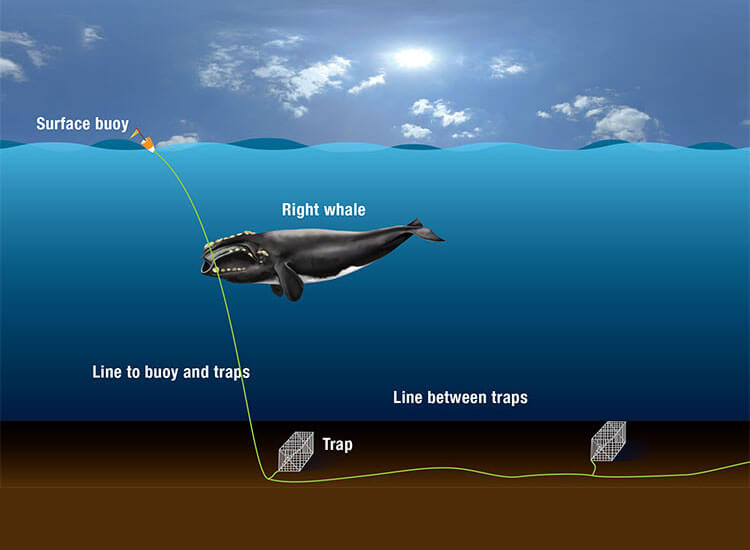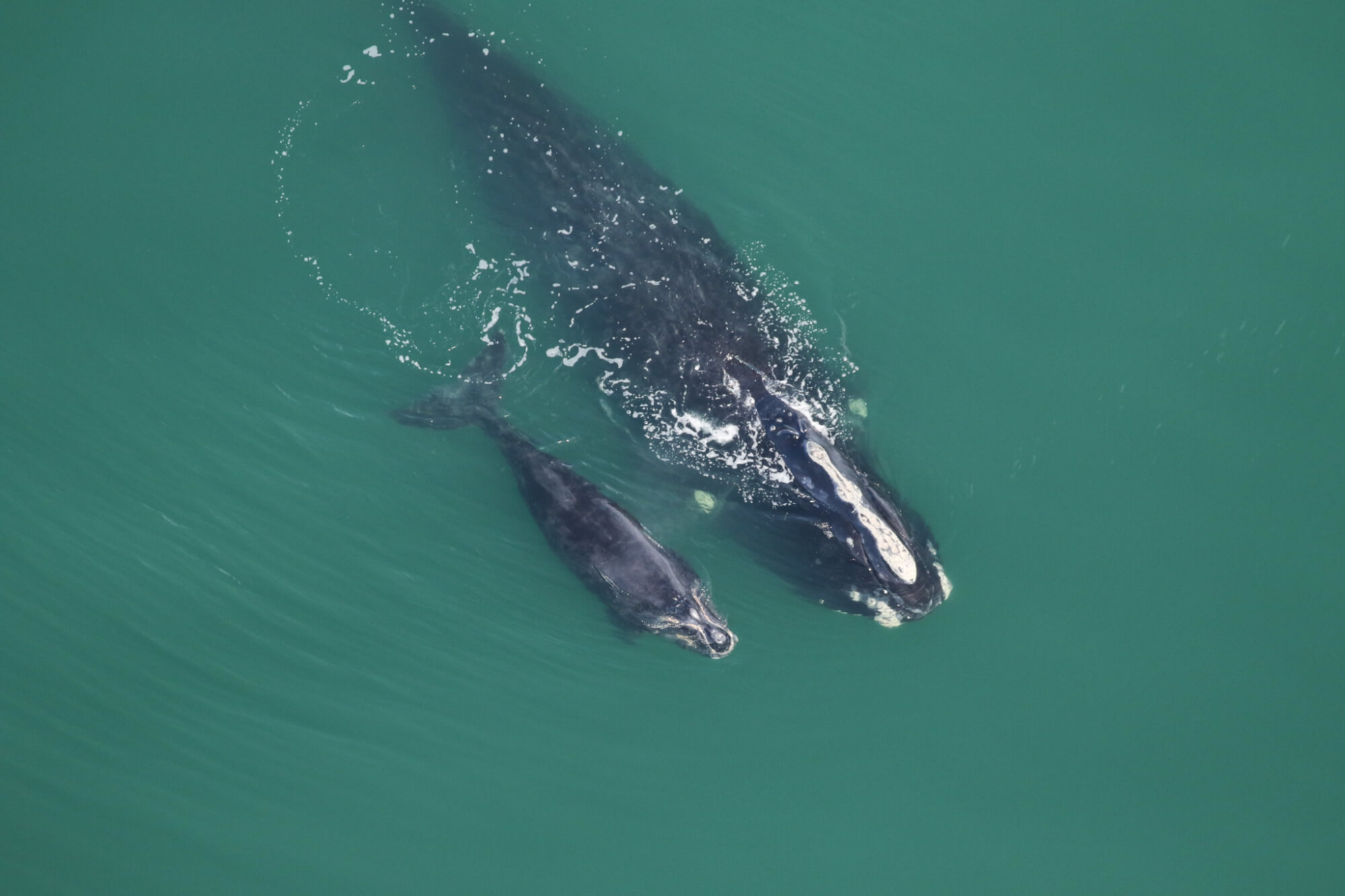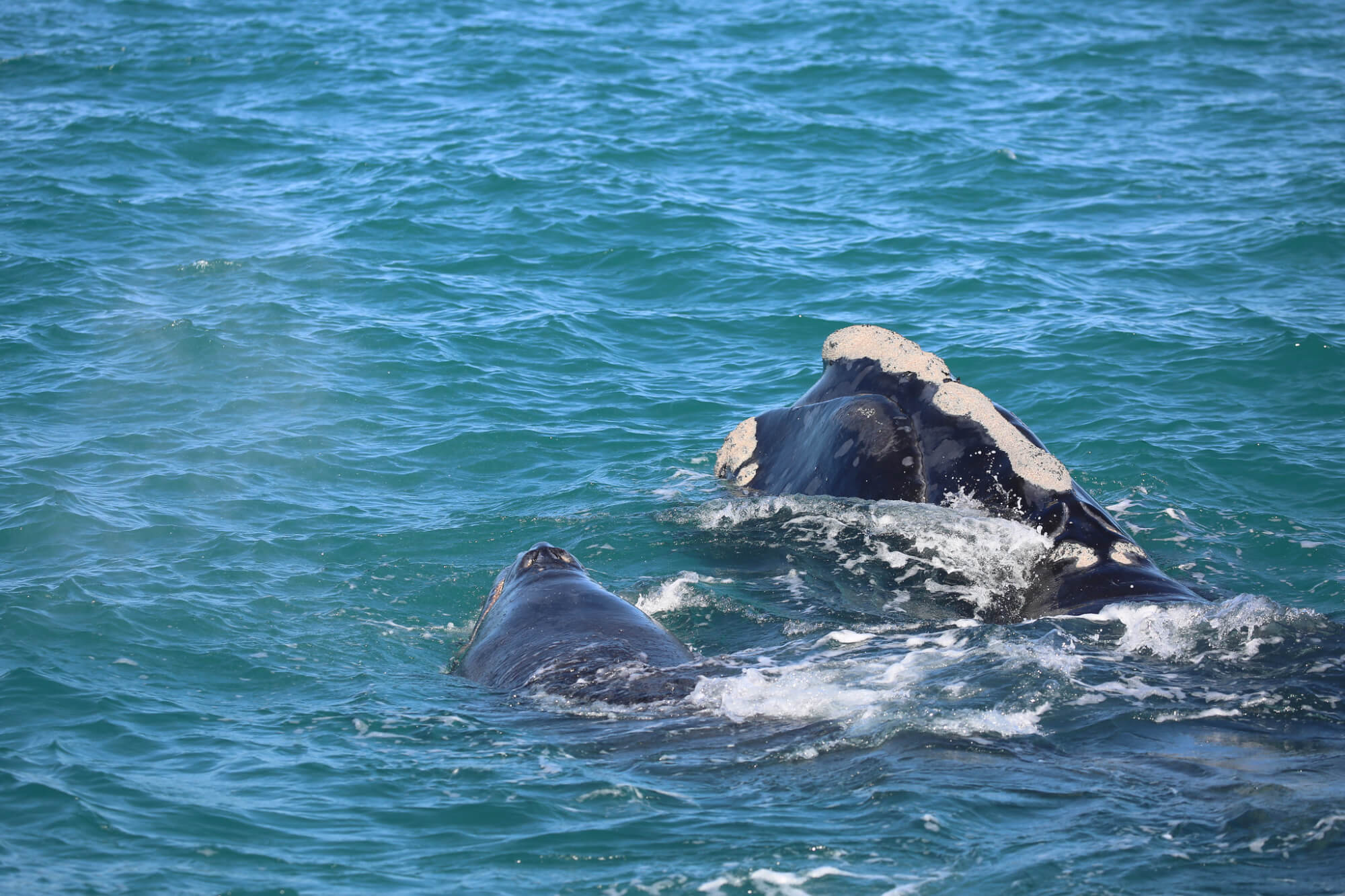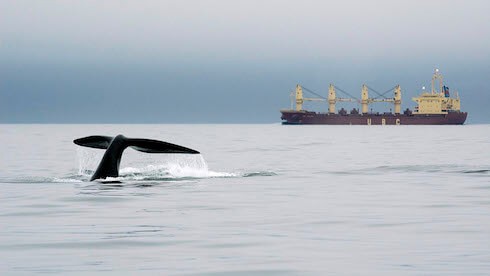Speed limits reduced to 10 knots in certain areas, closure of fishing zones, increased surveillance: the Government of Canada has announced a series of measures to lower the risk of entanglement and collisions for North Atlantic right whales. This endangered species has been an active user of the Gulf of St. Lawrence in summer months for the past several years. It comes here to feed. The Gulf is also criss-crossed by multiple shipping lanes and is used for fishing. These activities are not always perfectly compatible. Last year alone, ten North Atlantic right whale carcasses were found in Canadian waters, and at least four individuals were spotted entangled in fishing gear.
Reducing the risk of entanglement
Once again this year, so-called “dynamic” areas will be closed for 15 days if a North Atlantic right whale is detected there, either visually or acoustically. New this year: zones may close until the end of the season (November 15, 2020) if at least two whales are spotted on more than one day within the aforementioned15-day period.
Important new measures include a stipulation that all stationary fishing gear be marked in order to identify the type of fishery, the region, and – for the crab and lobster fisheries – the specific fishing area. This way, it will be possible to better understand where the North Atlantic right whales are getting themselves ensnared and in what type of fishery. This measure could also be beneficial for other whale species that also get entangled in fishing gear.
Ropeless fishing gear will be tested in closed fishing areas, creating an incentive for fishermen to develop this new technology.
Crabbers operating out of the Acadian Peninsula, the Chaleur Bay region and the Northumberland Strait could get off to an earlier start this year, thanks to icebreakers to help keep harbour areas ice-free. By starting their season earlier, fishermen could reach their quota even before North Atlantic right whales arrive in the area and thus minimize the risk of interaction.
What is an entanglement?
Entanglement, also referred to as an incidental catch or by-catch, occurs when a whale gets caught in a net, trap or rope used in the context of a fishing activity. The whale, in the process of trying to wiggle itself free, can find itself even more entangled. An entanglement can impair the animal’s ability to move, feed, reproduce and can even cause death. More than 80% of North Atlantic right whales will become entangled at least once in their lifetime. You can see in this video the complexity of such an incident.
Reducing the risk of collision
Consistent with the measures implemented in previous years, compulsory speed limit zones of 10 knots for vessels exceeding 13 metres will be established as soon as the first North Atlantic right whale is sighted by Transport Canada. Navigation corridors will also be subject to temporary speed limits when right whales are observed within their boundaries.
New this year: a voluntary speed limit area of 10 knots will be suggested in the Cabot Strait, which is not only an important navigation area but also an area heavily used by migrating whales. This voluntary limit would be proposed in late spring and early fall. The government is looking to evaluate the possibility of imposing this measure at a later time.
Another new measure is a mandatory restriction zone in the Shediac Valley. Transport Canada is requesting to avoid this area and, if it is absolutely necessary to pass through, to do so at speeds of no more than 8 knots. The boundaries of this area and when it is established will depend on when and how many right whales congregate there.
To dive deeper
Fishing management measures 2020 (Fisheries and Oceans Canada)
Speed reduction measures for collision prevention (Transports Canada)
Interactive North Atlantic right whale sightings map for Canadian waters (WhaleMap)
Interactive North Atlantic right whale sightings map for US Waters (NOAA)
Right Whale Mortalities in 2019 (Whales Online)
Right Whale Mortalities in 2018 (Whales Online)
Right Whale Mortalities in 2017 (Whales Online)
Right whale data sheet (Whales Online)






